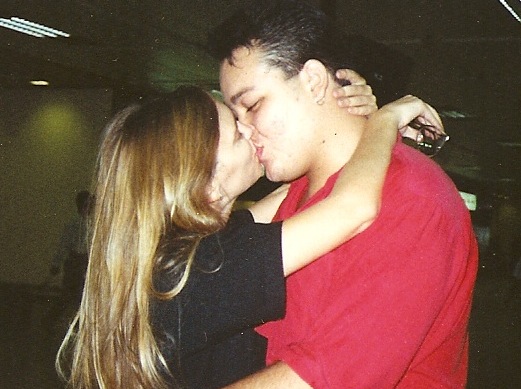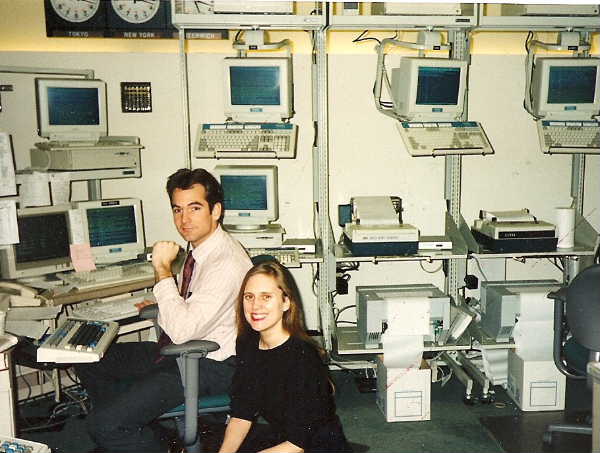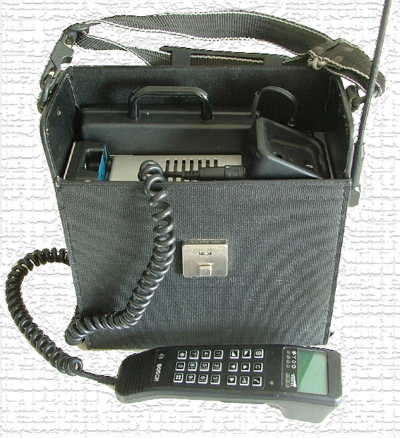|
I left Hong Kong for good in June 1990, kissing my rotund, cheerful Chinese boyfriend goodbye at the airport. When I arrived back in New York, after spending a few weeks in India and a newly post-apartheid South Africa, I landed squarely in the recession of 1990. Nobody was hiring, particularly not in the media industry, and certainly not a not poorly-connected, shabbily-dressed girl with an odd foreign resume. Foreign work experience was not yet fashionable.
|  Goodbye to boyfriend. |
|
|
|
 In the Dow Jones offices, with the teletypes. This fellow also kissed me, but he married one of the other reporters. |
|
|
 A mobile phone similar to the one I was issued in 1995. |
|
|
Next: Further adventures in journalism.
Return to Half-life homepage
Send e-mail to Xander Mellish: xmel _improved @xmel.com
U.S. Copyright Office Registration 1-141735861
Send e-mail to Xander Mellish: xmel _improved @xmel.com
U.S. Copyright Office Registration 1-141735861